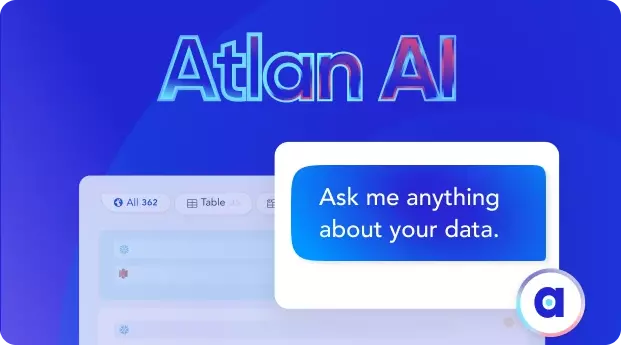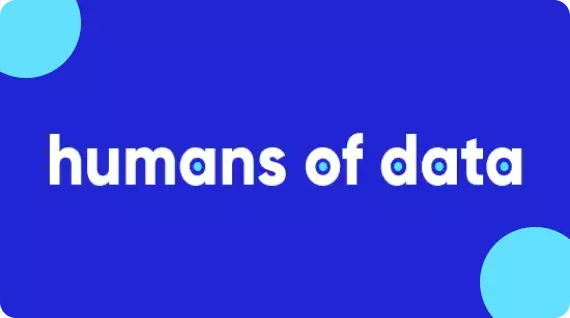Data Governance Tools Cost: What’s The Actual Price in 2024?
Share this article
Improving data governance is essential to improving data security and reducing the financial risks of non-compliance. But how much do data governance tools cost? How do you know you’re getting your money’s worth?
This question goes far beyond a sticker price. You need to evaluate multiple dimensions of cost, including some “hidden” costs you might not have considered up-front.
See How Atlan Simplifies Data Governance – Start Product Tour
Let’s look at how to estimate the cost of data governance tools and evaluate their return on investment.
Table of Contents #
- Basics of data governance tools costs
- Data governance tools cost: The hidden factors
- How good data governance tooling can offset costs
- Data governance tools cost: Calculating the value
- Conclusion
- Related reads
Basics of data governance tools costs #
Data governance is the set of policies and tools that manage data privacy, data access, and data ownership. An organization’s data governance keeps it compliant with privacy regulations, facilitates data stewardship, and enables data discovery.
Data governance tools offer significant potential value for a company. As with all investments, its value needs to cover the costs. When evaluating a tool, you need to assess the return on investment by considering the total benefit it brings and weighing that against the total costs of ownership:
ROI = total benefits - total costs
To begin understanding data governance tool costs, let’s look at their basic pricing structure:
- Licensing price: Base licensing fees vary between service providers. They will often depend on factors like the number of users, number of administrators, and licensing for software connectors.
- Hosting price: A data governance system hosted on the cloud will require spending on computation, and transferring from one system to another may incur egress fees.
- Add-on costs: Some systems feature additional paid add-ons for access to certain features or integration with third-party systems
- Implementation & ongoing costs: Installing a tool costs time in the setup phase; maintaining it requires consistent investment.
Data governance tools cost: The hidden factors #
Assessing the total cost of data governance tools requires consideration of multiple factors, including some that are easy to overlook. Four crucial factors to consider are:
- Variable pricing
- Training costs
- Maintenance costs
- Adoption factors
Variable pricing #
Data governance tools generally have pricing that varies according to some parameters. The particular parameters depend on the vendor. Some typical factors are:
- The number of active users
- The number of administrators
- The number of connectors to data sources
- The volume of data processed
The more your tool will be doing, the more you’re likely to pay. Additionally, this cost can - and likely will! - grow over time as your organization realizes the value of data governance tooling and expands its usage. For example, you may start with just a handful of connectors to key data sources but then move to a company-wide rollout once you see the ROI.
When evaluating a tool, make sure that you consider these factors and work them into your pricing estimates. Ensure that you’re accounting for the natural growth of data in your organization over the next year or two as part of your estimates. That’ll help ensure that any solution you adapt will continue to realize value well into the future.
Training #
When you introduce a new tool to your organization, users will spend some time learning how these tools work.
Training consists of both technical and non-technical education. Engineers will need to spend time learning integration basics (data connectors, AP integrations, Single Sign-In, etc.), dependencies, and the system workflow. Business users will have to learn to navigate user interfaces, understand how the tool works, and integrate it into their existing processes.
This training time creates a lag between the time of purchase and the point where the tool has been integrated into the organization and delivers value. Every day that passes while users are still learning, the purchase cost is stagnating.
When evaluating a data governance tool, these potential losses are why you need to consider how that tool supports a training period. Is it easy to use and learn? Does it have extensive, usable documentation? Does it offer training programs or integration assistance? Overlooking these questions could lead to frustrating downtime with your investment.
No matter how well a data governance tool is documented or how much training exists, you’ll always need to create some of your own custom training. This will cover how your organization uses data governance tools and how they fit into your workflow. Make sure to account for this time and expense as part of your estimates.
Adoption issues #
As people, we’re all naturally resistant to change. If something “works”, why change it? This is how we’ve always done it and the company’s still standing!
This natural resistance grows worse in the face of opaque tooling.
The worst-case scenario for a tool is that, after training and integration, the system still presents enough friction to cause users to skip it. If the system is unintuitive or frustrating, and answers are hard to come by, people will stick to what they have been doing rather than take advantage of the new system.
Poor adoption is a serious risk to the overall success of your data governance initiative. It doesn’t incur any further costs but suppresses the value the tool can deliver. To avoid this pitfall, when evaluating a data governance tool, consider the quality of the user experience, whether users can easily find answers to questions, and how the system integrates with existing workflows.
Maintenance #
Data governance tools are extensive systems that may run into issues. When an error occurs, the affected workflows halt until someone can resolve the problem. In those moments, ease of troubleshooting makes the difference.
If troubleshooting requires specific expertise, the maintenance burden will fall upon the limited number of individuals in the organization who have the right skills. If no one has that expertise, you’ll have to rely on - and pay for - external consultants.
Beyond errors, you may have questions about how the tool works or different possible use cases. If customer service is poor or unavailable, you may waste time searching for answers and still be unable to realize the full potential of your investment.
How good data governance tooling can offset costs #
When considering a data governance tool, consider how it offsets the potential costs. Does it have a smooth integration outline, like a DIY setup program? Does it have on-call support teams available 24/7? Does the tool have an intuitive user experience that supports a variety of users, e.g., effortless ways to personalize the tool to every user persona, business domain, and data project in your organization?
A tool with these features cuts against its costs, delivering optimal value for the price.
Data governance tools cost: Calculating the value #
Remember, don’t just go by the sticker price when looking for data governance tools. Calculate the costs and the value to compute the tool’s expected ROI. When looking at the value a data governance tool might deliver, consider:
- Collaboration enablement: Data governance tools can bring your organization together with data discovery tools that enable data self-service. Collaboration support that embeds with existing communication tools can make data sharing a part of daily workflows.
- Data utilization: Metadata systems enable users to search your entire data estate. Enabling data discovery in this way allows users to understand and use data more effectively. It also helps you put data to use to yield business value. By contrast, data that no one can discover easily runs the risk of remaining “dark", chewing up data storage and computing costs while delivering zero ROI.
- Automation support: Automatic systems, like an automated visible data lineage, save data teams time so they can focus on more valuable tasks. Machine-learning-powered metadata suggestions and data grouping help analysts find data assets and develop understanding.
Conclusion #
When choosing a data governance tool, you must consider all the factors that affect the price. Ensure you factor in hidden costs like variable pricing, training time, ease of use, and support availability.
Atlan is designed with these costs in mind, providing tools that enable collaboration, data discovery, and automation. Want to see the value that Atlan can deliver for yourself? Book a personalized demo today.
Data governance tools cost: Related reads #
- Data Governance in Action: Community-Centered and Personalized
- Data Governance Framework — Examples, Templates, Standards, Best practices & How to Create One?
- Data Governance Tools: Importance, Key Capabilities, Trends, and Deployment Options
- Data Governance Tools Comparison: How to Select the Best
- Data Governance Tools Cost: What’s The Actual Price?
- Data Governance Process: Why Your Business Can’t Succeed Without It
- Data Governance and Compliance: Act of Checks & Balances
- Data Governance vs Data Compliance: Nah, They Aren’t The Same!
- Data Compliance Management: Concept, Components, Getting Started
- Data Governance for AI: Challenges & Best Practices
- A Guide to Gartner Data Governance Research: Market Guides, Hype Cycles, and Peer Reviews
- Gartner Data Governance Maturity Model: What It Is, How It Works
- Data Governance Roles and Responsibilities: A Round-Up
- Data Governance in Banking: Benefits, Implementation, Challenges, and Best Practices
- Data Governance Maturity Model: A Roadmap to Optimizing Your Data Initiatives and Driving Business Value
- Open Source Data Governance - 7 Best Tools to Consider in 2024
- Federated Data Governance: Principles, Benefits, Setup
- Data Governance Committee 101: When Do You Need One?
- Data Governance for Healthcare: Challenges, Benefits, Core Capabilities, and Implementation
- Data Governance in Hospitality: Challenges, Benefits, Core Capabilities, and Implementation
- 10 Steps to Achieve HIPAA Compliance With Data Governance
- Snowflake Data Governance — Features, Frameworks & Best practices
- Data Governance Policy: Examples, Templates & How to Write One
- 7 Best Practices for Data Governance to Follow in 2024
- Benefits of Data Governance: 4 Ways It Helps Build Great Data Teams
- Key Objectives of Data Governance: How Should You Think About Them?
- The 3 Principles of Data Governance: Pillars of a Modern Data Culture
Share this article









